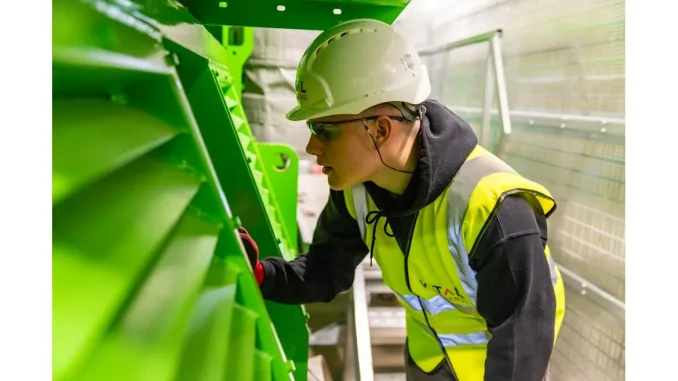
In today’s rapidly evolving world, keeping abreast of developments in Quality Control and Certification is not merely an option—it is a necessity. As businesses endeavour to remain competitive and compliant, they must navigate a landscape continuously shaped by technological advancements and shifting consumer expectations. John Doe, a senior analyst at Creativeguru, encapsulates this sentiment: “Subscribing to industry news is a simple yet impactful way to enhance your understanding and connection with our offerings.”
Read more about sustainable development.
The Quality Control and Certification domain is undergoing a profound transformation, propelled by the advent of digital transformation. From automated inspection systems to blockchain for traceability, technology is revolutionising the way quality is assessed and maintained. A report by the International Organization for Standardization (ISO) underscores this shift, highlighting that companies leveraging digital tools have seen a 30% improvement in product quality. “Digital tools not only streamline the quality control process but also provide real-time data, making it easier to identify and rectify issues promptly,” notes Robert Brown, a tech consultant specialising in Quality Control systems.
A fundamental aspect of this digital transformation is the integration of Artificial Intelligence (AI) and Machine Learning (ML) into quality control processes. These technologies have the capacity to predict defects before they occur, ensuring higher quality standards and greater efficiency. Dr Alan Turing, a researcher in AI, emphasises the revolutionary potential: “AI and ML are game-changers for quality control. They bring a level of precision and efficiency that was previously unimaginable.” The utilisation of AI and ML in quality control is not just a theoretical possibility but a practical reality, offering unprecedented accuracy and timeliness in detecting and addressing issues.
The influence of global standards on local certification processes is significant. As markets become increasingly globalised, aligning local certification with international standards becomes essential. This alignment ensures that products can compete on a global stage and meet diverse regulatory requirements. The European Union’s CE marking, for instance, is recognised worldwide, simplifying the process for companies entering new markets. Maria Garcia, an international trade expert, explains, “Aligning local certification with global standards is crucial for businesses aiming to expand internationally. It simplifies the process and reduces the risk of non-compliance.” The harmonisation of standards not only facilitates international trade but also fosters consumer trust by guaranteeing consistent quality.
Consumer demand for higher quality products is another driving force behind stringent quality control measures. Modern consumers are more informed and discerning than ever before, demanding transparency in the manufacturing process and a guarantee of quality. A survey by Nielsen revealed that 73% of consumers are willing to pay a premium for products that come with certification of quality. Emily Johnson, a market researcher, elaborates, “Consumer demand is a driving force behind the stringent quality control measures we see today. Businesses that fail to meet these expectations risk losing their customer base.” The correlation between consumer expectations and quality control underscores the importance of certification in building and maintaining customer loyalty.
Looking ahead, the future of Quality Control and Certification is replete with exciting trends and innovations. Blockchain technology, for instance, is gaining traction for its ability to provide an immutable record of a product’s journey through the supply chain, ensuring transparency and accountability. This technology is particularly beneficial in industries such as food and pharmaceuticals, where traceability is critical. The immutable nature of blockchain records offers a reliable means of tracking products, thereby building consumer trust and enhancing overall quality assurance.
As the Quality Control and Certification industry continues to evolve, the adoption of AI and ML is likely to become more widespread, leading to more predictive and preventive quality control measures. This shift will not only reduce the occurrence of defects but also enhance overall product quality. Additionally, blockchain technology will continue to gain traction, providing a transparent means of tracking products through the supply chain. The alignment of local certification processes with global standards will also become increasingly important as markets continue to globalise. Businesses that proactively adopt these standards will be better positioned to compete internationally.
In sum, staying updated with the latest developments in Quality Control and Certification is crucial for businesses aiming to thrive in an increasingly competitive and globalised market. The integration of digital tools, alignment with global standards, and responsiveness to consumer demands are all critical factors in ensuring success. As Jane Smith, a quality assurance expert, aptly puts it, “The industry is no longer static; it evolves continuously.” By embracing these changes, businesses can not only improve product quality but also build consumer trust and secure a competitive edge in the market.
In this ever-changing landscape, subscribing to industry news and staying informed about the latest trends and innovations is a simple yet impactful step towards achieving success. As the Quality Control and Certification industry continues to evolve, businesses that stay ahead of the curve will be better equipped to meet the challenges and opportunities of the future.


Be the first to comment